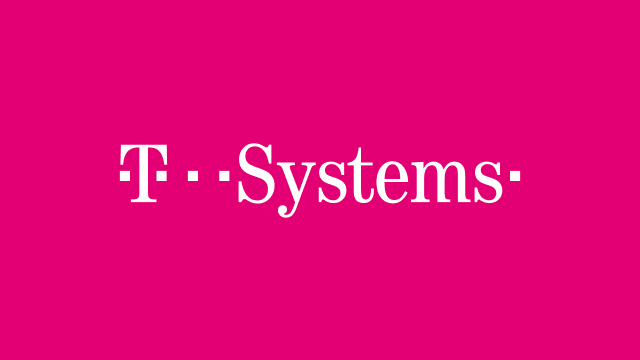Sellers who understand the value of using Highspot and have immersed themselves in the tool are performing better and closing deals more quickly because they’re getting the guidance and training they need for each unique selling scenario, exactly when they need it.
How Granicus Reduced Time to Productivity by 20%
Granicus trains with operational rigor, accelerating productivity and amplifying pipeline generation.

Introduction
One of the most fundamental ways an organization can accelerate productivity is through robust onboarding and training. While today’s volatile economic climate produces unpredictable buyer decisions and market uncertainty, preparing a seller to face these challenges and making sure they feel supported through and beyond their training can be the difference between a low-performing seller and a high-achieving one.
Granicus, a digital civic engagement platform for government agencies, was looking for an onboarding and training solution that both attracted sellers and bolstered their performance throughout their time with the company. As a company that was already leveraging Highspot’s Content & Guidance platform, Granicus decided to extend their investment into Training & Coaching as well, ultimately using it to fuel seller performance and productivity.
Industry:
Technology
Employees:
1000+
Use Cases:

Opportunity
Attracting and Retaining Top Sales Talent in a Complex and Diverse Industry
As a platform serving the public sector, Granicus has diverse buyer personas spanning branches, agendas, levels, and specific needs. This complexity means that sellers need broad-ranging expertise of the specialized interests and priorities among different personas. “We just can’t assume that sellers come in with a baseline understanding of what our customers are trying to do,” shared Shawn Pillow, director of sales enablement and solution consulting at Granicus. “To be able to empower them to succeed in their initial role, we have to be able to teach them about that agency’s mission and its outcomes.”
In addition to the complex background knowledge required, Granicus’ previous model for onboarding and training was ad-hoc rather than consistent and repeatable. This prevented the company from efficiently using their training resources and tracking or advancing the effectiveness of their training programs. “It started anew every time we onboarded or hired a new seller,” said Pillow. “Not only does that not make good use of the scarce resources that most enablement teams typically have, but it also meant that we delivered inconsistent results.”
Pillow also saw how a smooth and supportive training process benefits not only the internal functions of the company, but its external appeal to new sellers looking to join the organization. Having successful and satisfied sellers can serve as a magnet for other high performing sellers. “I think it’s really critical as a point for attracting incredible talent to be able to convey to a seller during the interview process how they’ll be supported, what the organization that is dedicated to making them successful looks like, and how they’ll be able to adapt to uncertainties and certainly the vicissitudes that we see right now in the marketplace,” explained Pillow. “If you want to deliver a premier training program, you also have to be able to attract premier talent and that starts with being able to tell those sellers how you’ll support them.”
We’ve been able to make additional improvements along the way so that as we evolve our messaging, we can get that messaging into sellers’ hands sooner during the onboarding process, instead of later. It lets us be much more nimble.

Solution
Designing Scaleable Learning From Onboarding to Training and Coaching
The company knew that they needed to find a sustainable and scalable method of training to better support their sellers in their selling journey from the very start. It began using Highspot’s Training & Coaching platform to implement its newly refined onboarding and training strategy. “On the very first day that a seller starts, they get placed into our onboarding program,” explained Pillow. “Sellers are not just getting exposure to the elements that are part of the onboarding program–they are getting onboarded on how to use Highspot as a tool that will be critical for their sales success.”
In addition to supporting sellers with structured onboarding and ongoing training courses, Granicus also leverages actionable insights gathered in Highspot Analytics to continuously improve the effectiveness of training, content, and guidance. For example, the enablement team assesses content usage and search analytics to better understand what their sellers were looking up, engaging with, or needing more information on in order to adapt their training strategies to meet those needs and provide information that drives productivity. Similarly, by integrating Highspot with Salesforce, Granicus also helps sellers gain deep insight otheir customers to improve personalization with data on historical account engagement.
“Salesforce actually does become that single source of truth for them,” said Pillow. “If they begin working with a new customer or they have a customer that they engaged with two years ago and haven’t really had much interaction with since, they can get a really rich history on areas of interest or engagement with specific pieces of content and then be targeted in the way that they reach out to them in the future.”
While providing repeatable ways to sharpen seller skills and drive productivity, Granicus further improved the scalability of its enablement programs by prioritizing ongoing coaching. A key way Granicus does this is through the use of manager evaluations in Highspot. For example, during the onboarding process, sales managers are invited to assess sellers’ responses to prompts and practice scenarios in the lessons and uncover the areas where they might need additional support. “It’s helped them be introspective about where they might like to improve,” shared Pillow. “And, it’s helped them be a little bit more critical about the other people on their team and where those people might need additional improvements.”
Impact
Accelerating Productivity and Amplifying Pipeline Generation
Immediately after launching their new onboarding and training programs, Granicus saw a jump in the success of their sellers, achieving a 26% increase in average deal size. By anticipating the kinds of information their sellers would need to connect with and win customers, the company built a well-structured, evolvable training program that supported not only sellers, but any changes to company rhythms. “Our newer sellers are generating nearly triple the pipeline than sellers who had previously onboarded. We’ve been able to reduce their ramp time to productivity by about 20%,” said Pillow. “We’ve been able to make additional improvements along the way so that as we evolve our messaging, we can get that messaging into sellers’ hands sooner during the onboarding process, instead of later. It lets us be much more nimble.”
Combining their usage of Highspot as a one-stop content management system with their onboarding and training helped Granicus align their training material with the types of content and strategy sellers would be using in their real selling cycles. “Sellers who understand the value of using Highspot and have immersed themselves in the tool are performing better and closing deals more quickly because they’re getting the guidance and training they need for each unique selling scenario, exactly when they need it,” explained Pillow.
Our newer sellers are generating nearly triple the pipeline than sellers who had previously onboarded.

Listen to the Podcast
Episode 21: Training Reps for Efficiency
Related Resources

T-Systems establishes consistency with Highspot.


Clari boosts expansion revenue and accelerates sales outcomes with Highspot.